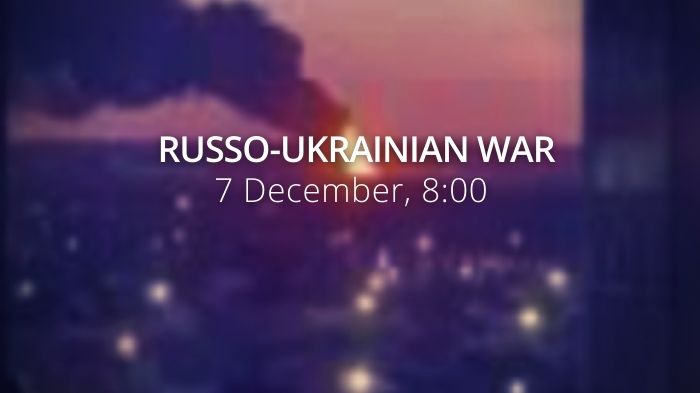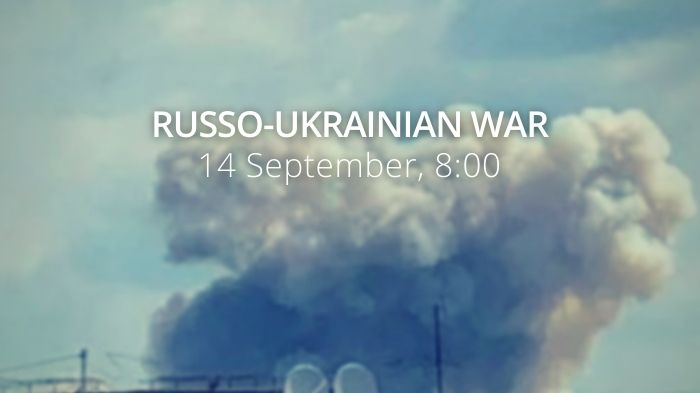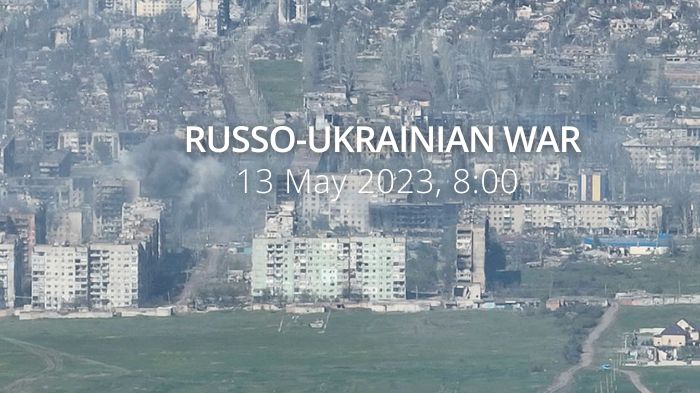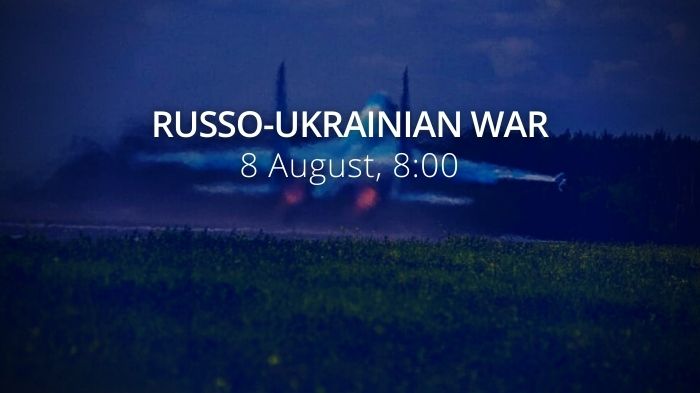Drones attack a Russian classified plant 80 km from the Ukrainian border. Russia’s Dec 5 missile attack on Ukraine cost $400-500 million, writes Forbes Ukraine. EU officials vow support despite Hungary’s veto of Ukrainian aid.
Daily overview — Summary report, December 7
A map of the approximate situation on the ground in Ukraine as of 00:00 UTC 07/12/22.
There have been no notable changes to control since the last update. pic.twitter.com/x7dsPenwmy
— War Mapper (@War_Mapper) December 7, 2022
The General Staff’s operational update regarding the Russian invasion as of 06.00 am, December 7, 2022 is in the dropdown menu below:
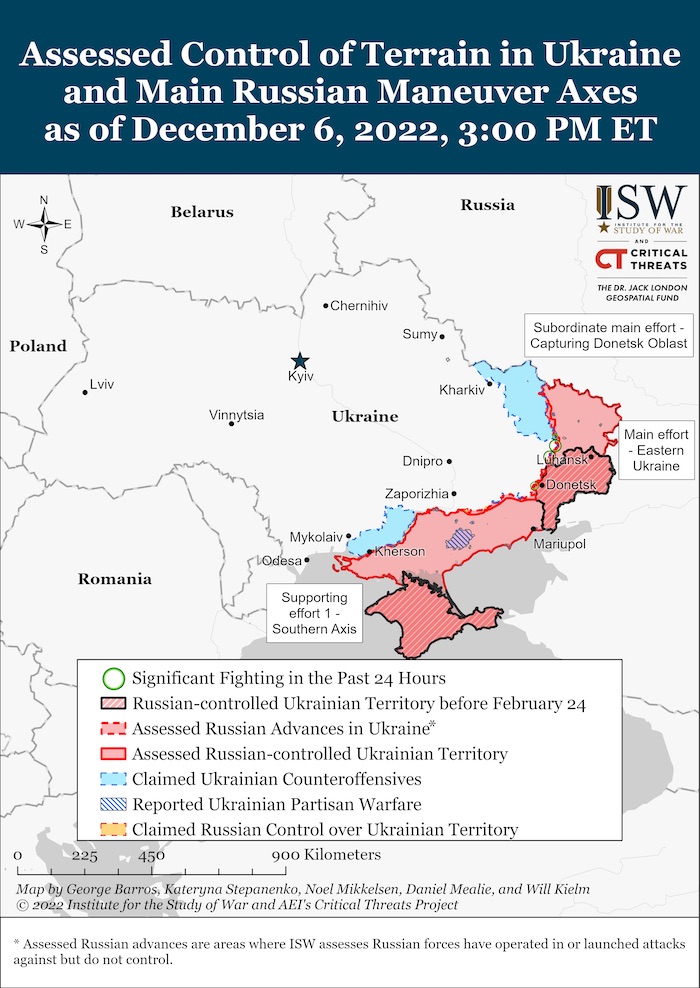
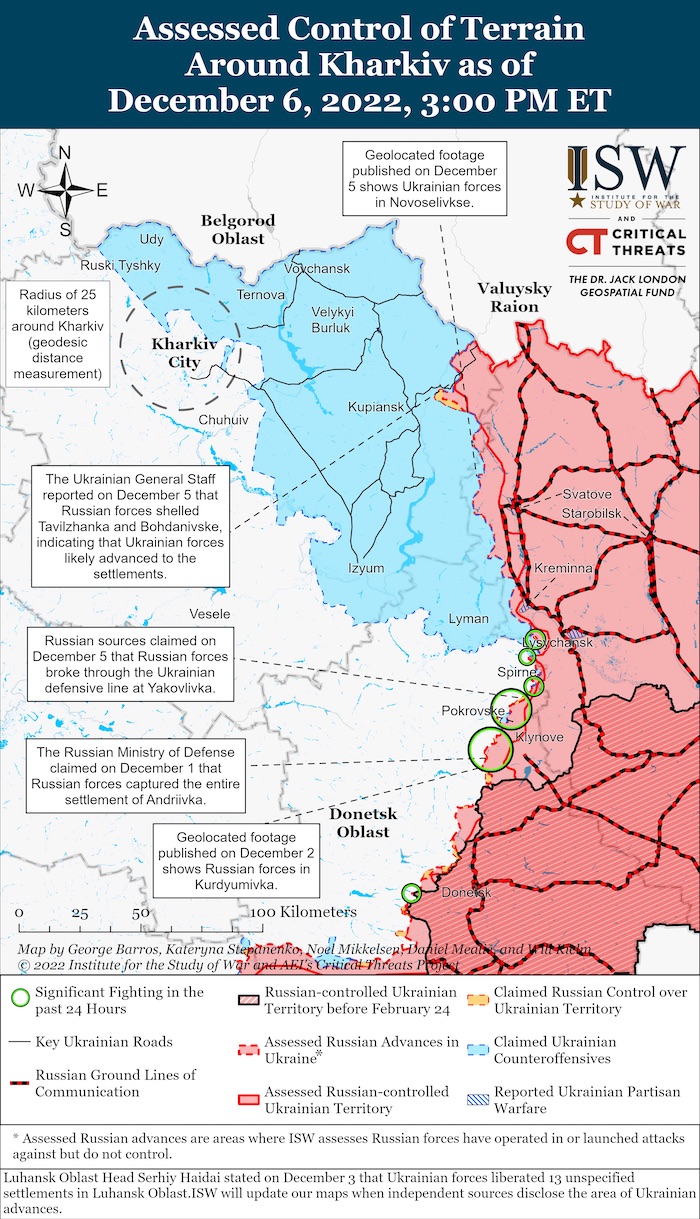
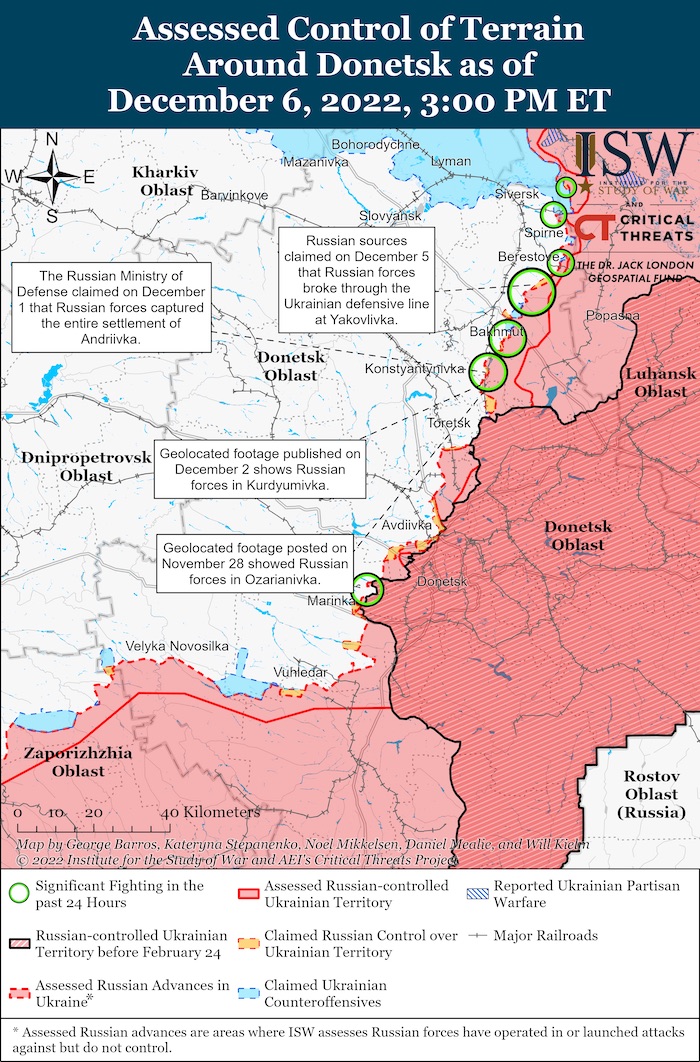
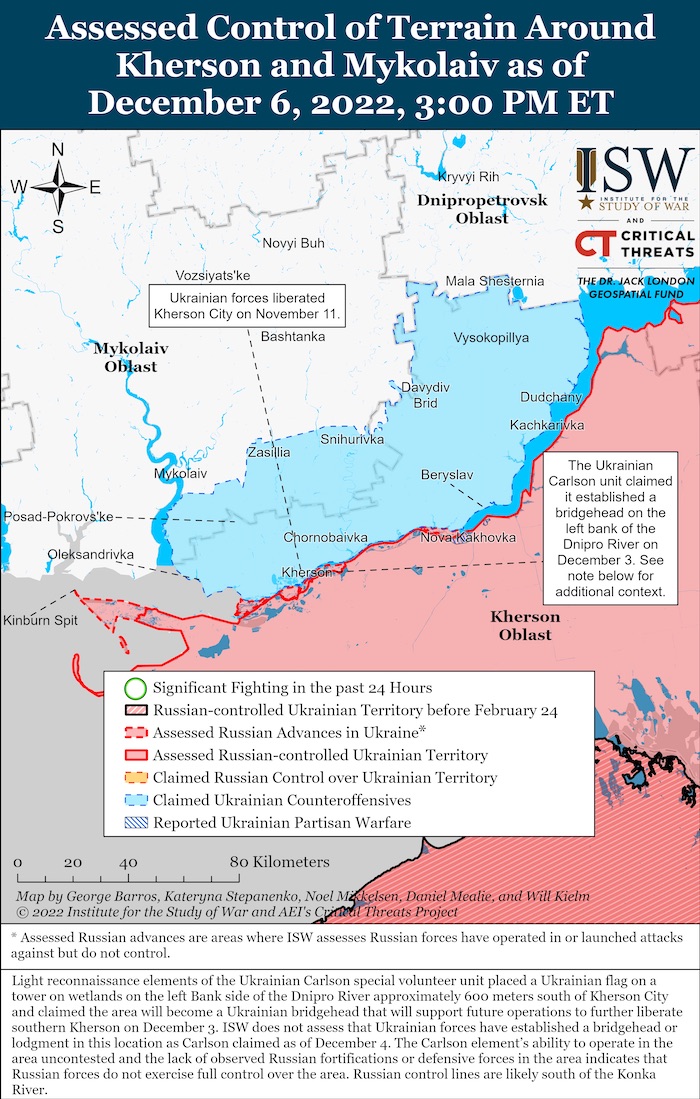
Military Updates
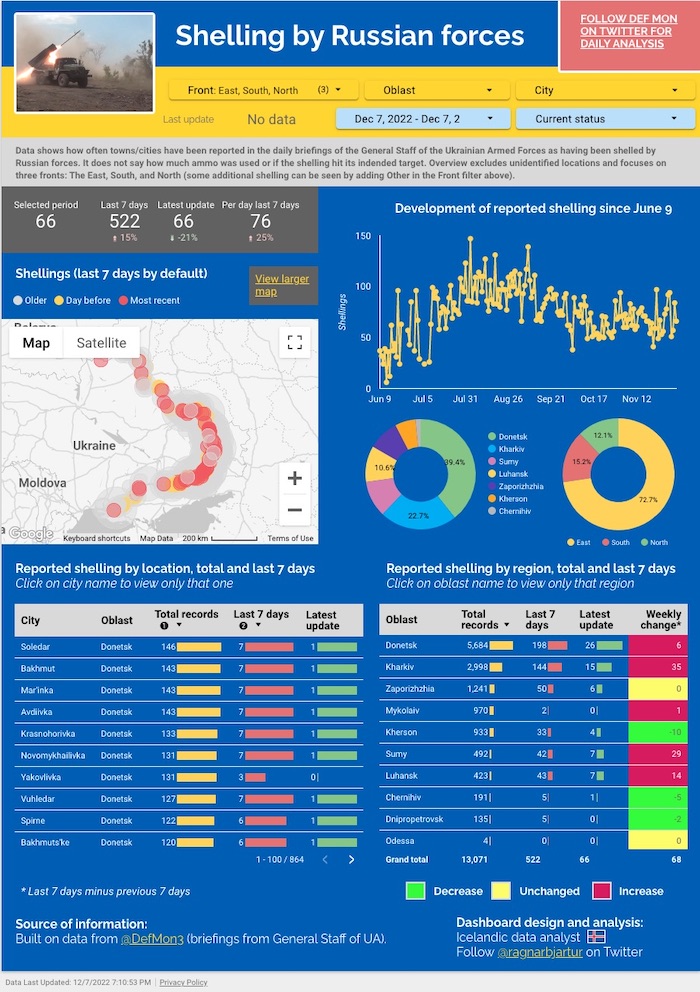
US is not preventing Ukraine from developing long-range strike capabilities – US @SecDef Austin
US Secretary of State Antony Blinken said Tuesday that the US has “neither encouraged nor enabled the Ukrainians to strike inside of Russia.”https://t.co/nkh29WqDPh
— Euromaidan Press (@EuromaidanPress) December 7, 2022
Ukrainian 1000-km range suicide drone passes a number of tests. Ukraine’s state defense concern Ukroboronprom said on 4 December that a combat drone it is developing has passed “a number of stages of successful testing” and is moving to the stage of testing under electronic warfare.
Ukraine “executed its most brazen attack” hundreds of miles into Russian territory using unpiloted drones – NYT. On 5 December, Ukraine executed its most brazen attack into Russian territory in the nine-month-old war on Monday, targeting two military bases hundreds of miles inside the country, using unpiloted drones, according to the Russian Defense Ministry and a senior Ukrainian official, The New York Times reported.
https://twitter.com/EuromaidanPress/status/1600432176876568576
Oil depot on fire after a drone attack on an airfield in Russia’s Kursk. An oil depot near the airfield of the Russian city Kursk came on fire after a drone attack, governor Roman Starovoit reported at 5:21 AM.
Three things Ukrainian drone attacks on Russian airbases change in the war
Ukrainian ability to destroy strategic bomber aircraft stationed in the Russian rear comes like a bolt from the blue and will have strategic impact.
📷@ImageSatIntl https://t.co/g1nQ4hOtVK pic.twitter.com/Oqnh1DFJra— Euromaidan Press (@EuromaidanPress) December 7, 2022
According to British Defence Intelligence, (last 48 hours):
https://twitter.com/DefenceHQ/status/1600430371052609536
- Russia has recently started extending defensive positions along its international border with Ukraine, and deep inside its Belgorod region. On 6 December 2022, the governor of Belgorod announced he was establishing local ‘self-defence units’. Trench digging has been reported in Belgorod since at least April 2022, but the new constructions are probably more elaborate systems, designed to rebuff mechanised assault.
- There is a realistic possibility that the Russian authorities are promoting defensive preparations within internationally recognised Russian territory to burnish patriotic feeling. However, it probably illustrates some Russia decision-makers’ genuine (but false) belief that there is a credible threat of invasion by Ukrainian forces.
- The paucity of strategic assessment is one of the critical weaknesses in the central Russian government architecture: as highlighted by Russia’s original decision to invade Ukraine. The impartial official analysis is almost certainly frequently undermined by a tendency toward group-think and politically expedient conclusions.
Losses of the Russian army
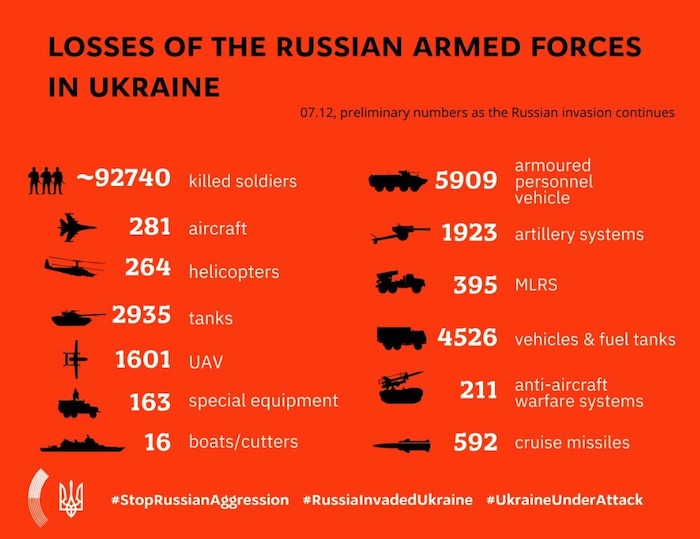
Humanitarian
Ukraine returns home 60 POWs, including 14 Azovstal defenders as part of a prisoner exchange in the format 60:60, head of Ukraine’s Presidential Office Andrii Yermak informed. They include defenders of the Armed Forces, the National Guard, and the State Border Guard Service. 58 men and 2 women, 15 officers and 45 privates and sergeants.
️Environment
Russians attacked Zaporizhzhia Oblast with S-300 missiles and drones, injuring 3 incl 15yo girl – Oblast Head Starukh
One villages has 2 homes destroyed, 8 damaged, the other 1 destroyed 1 damaged. 6 UAVs were shot down.https://t.co/eEBAsk1ydP pic.twitter.com/3N8ylbnX8v
— Euromaidan Press (@EuromaidanPress) December 7, 2022
Ukraine will not give up, even if Russia continues massive missile attacks on the energy system – Survey Majority of Ukrainians support armed resistance, despite Russian missile terror, according to the data of Kyiv Intl. Institute of Sociology.
Ukraine will not give up, even if Russia continues massive missile attacks on energy system – Survey
Majority of Ukrainians support armed resistance, despite Russian missile terror, according to the data of Kyiv Intl. Institute of Sociology.
Infographics: https://t.co/pLjAWcW6g0 pic.twitter.com/Q6xLu94i0a— Euromaidan Press (@EuromaidanPress) December 7, 2022
Support
Military, humanitarian and financial support of Ukraine, according to Kiel Institute for the World Economy.
Data on 41 donors that render support to Ukraine this year (from Jan. 24 to Nov. 20, 2022). pic.twitter.com/WTFpZlTCyk
— Euromaidan Press (@EuromaidanPress) December 7, 2022
EU officials vow support despite Hungary’s veto of Ukrainian aid – The Guardian. Senior EU officials have vowed to ensure Ukraine gets €18 billion in financial aid after Hungary vetoed the release of the funds, The Guardian reports. European Commission vice-president, Valdis Dombrovskis, told reporters that the EU must keep its promises to Ukraine.
Russia's invasion of Ukraine cannot lead to Russia becoming richer and should instead end in punishment, Estonia's PM Kaja Kallas has said:
"The message that we have to say loud and clear is that aggression cannot pay off," Kallas told Euronews.https://t.co/oUG1m4uQWn
— Euromaidan Press (@EuromaidanPress) December 6, 2022
New Developments
EU Council approves only one of three docs needed for providing €18 bn aid for Ukraine. The Council of the European Union failed to adopt a complete package consisting of three pieces of legislation needed to provide Ukraine with €18 billion in macro-financial assistance in 2023.
Spanish police intercepted three more packages containing animal eyes addressed to Ukraine missions in Madrid and its consulates in Barcelona and Málaga on Monday, police sources close to the investigation said, according to Euronews.
Canada PM Trudeau “extremely concerned” that Canadian-made parts found in Iranian "kamikaze drones"
Iranian drones used by Russia were found to be made with parts from Western countries including Canada.https://t.co/W7kwiHBuFw
— Euromaidan Press (@EuromaidanPress) December 6, 2022
Drones attack a Russian classified plant 80 km from the Ukrainian border. Drones attacked the plant Slava on the night if 6 December, falling three meters from diesel fuel tanks, the Russian Telegram channel Baza reported. Presumably, two drones flew into the territory of the plant, located in Bryansk Oblast 80 km from the Ukrainian border. They fell and exploded three meters away from five-ton fuel tanks with diesel fuel. As the tanks were empty at this moment, a “serious fire” was avoided, Baza claimed.
Hungary vetoes Ukraine aid, EU seeks alternative solution
Hungarian PM Viktor Orbán has chosen to play hardball, using the need for his approval for Ukraine aid as leverage to secure his share of EU recovery funds.https://t.co/ajzA13kET1
— Euromaidan Press (@EuromaidanPress) December 6, 2022
Assessment
- On the war.
The Institute for the Study of War has made the following assessment as of December 6, 2022:
The Kremlin directly responded to Russian rumors of a second wave of mobilization in an apparent effort to manage growing societal concern and recentralize information about the war with the Russian government and its authorized outlets. Kremlin Press Secretary Dmitry Peskov on December 6 urged Russians to rely on communications from the Russian Ministry of Defense (MoD) and the president and to ignore the “provocative messages” published on social media platforms such as Telegram regarding a second wave of mobilization.[1] Peskov’s statement is likely aimed at discrediting the growing influence of both Russian opposition and pro-war Telegram channels that have been consistently reporting on indicators of the Kremlin’s intention to resume mobilization in 2023.[2] Russian President Vladimir Putin is also increasing measures to prevent mobilized men and their families from complaining about mobilization problems. Putin, for example, signed a law banning rallies in government buildings, universities, schools, hospitals, ports, train stations, churches, and airports—likely to suppress riots and protests among mobilized men and their families.[3]
The Kremlin seems to be departing from the limited war messaging it has been using to reduce concerns among the general Russian public about the war, likely in an effort to condition the public for future mobilization waves. Belgorod and Kursk oblasts have announced the formation of territorial defense units, exposing many civilians to the war under the absurd premise of the threat of a Ukrainian ground assault on Russia’s border regions.[4] ISW previously reported that Kremlin propagandists have started propounding similar implausible theories about a Ukrainian ground threat to Russian territory.[5] Moscow officials even plastered advertisements for the special military operation throughout the city, which ISW has previously observed only in remote cities and settlements during the summer of 2022 amidst Russia’s volunteer recruitment campaigns.[6] However, these information conditions are likely insufficient to convince the Russian population at large of the necessity for additional mobilization given the underwhelming response to volunteer recruitment advertisement efforts over the summer. The Kremlin risks further harming its credibility by announcing mobilization that has been predicted by unofficial sources but not discussed by Russian officials. Russian officials face major challenges balancing Russian force generation needs, which require the enthusiastic support of the milblogger community, and control of the Russian information space.
Putin’s decision to order a second wave of mobilization, general mobilization, or even announce a formal declaration of war with Ukraine will not fix the inherent constraints on Russian military power available for the war in Ukraine in the short term. The Russian MoD can only simultaneously train about 130,000 conscripts during a bi-annual conscription cycle in peacetime and has struggled painfully to prepare a larger number of mobilized men over a shorter period.[7] The Ukrainian Commander of the Ground Forces, Colonel General Oleksandr Syrskyi, noted that Russian mobilized men who are now arriving at the frontlines are better trained than those mobilized men who had arrived at the frontlines immediately after Putin’s partial mobilization order on September 21.[8] The Kremlin took almost three months to prepare some of these units, while it prematurely committed other ill-prepared and poorly supplied mobilized elements to the frontlines. The Kremlin’s sham announcement of the end of mobilization call-ups on October 28 is also an indicator that the Russian MoD acknowledges that it lacks the capacity to sustain reserve mobilization and conscription simultaneously. The Kremlin’s force generation efforts remain contingent on its ability to invest time and supplies into its personnel, requirements that are badly at odds with the Kremlin’s lack of long-term strategic planning.
Igor Girkin, a former Russian militant commander and prominent critical voice in the Russian milblogger information space, returned to Telegram following a nearly two-month stint in Ukraine and used his return to offer a vitriolic first-hand account of the situation on the frontlines. Girkin posted on Telegram on December 6 to speak on his experiences in Ukraine for the first time since he announced he was leaving to join the Russian army to fight in Ukraine in October.[9] Girkin detailed his multiple and unsuccessful efforts to register and join various units and contentious interactions with Russian and Donetsk People’s Republic (DNR) commanders and noted that he finally joined a DNR battalion illegally, which allowed him to deploy to the Svatove area in Luhansk Oblast.[10] Girkin concluded that based on his experience on the frontline, it is clear that Russian forces are suffering from a “crisis of strategic planning” due to the fact that troops are relying only on tactical inertia and not cohering around a wider strategic goal.[11] Girkin also noted that the Kremlin will be unsuccessful in igniting protests in Ukraine with its missile campaign against critical energy infrastructure, further noting that winter weather will not stop Ukrainian forces from advancing.[12] Several other prominent milbloggers amplified Girkin’s story and conclusions, emphasizing Girkin’s past leadership role in hostilities in Donbas in 2014.[13] This scathing critique of the Russian military leadership from one of the most vocal and well-known figureheads of the hyper-nationalist information space, who has now reportedly acquired first-hand experiences of the nuances of frontline life, is likely to exacerbate tension between Russian military leadership and milbloggers and may reignite fragmentation within the ultra-nationalist community itself.
Key Takeaways
- The Kremlin directly responded to Russian rumors of a second wave of mobilization in an apparent effort to manage growing societal concern and recentralize information about the war with the Russian government and its authorized outlets, but there are several indicators that Russia still intends to conduct a second wave of mobilization.
- Igor Girkin, a former Russian militant commander and prominent critical voice in the Russian milblogger information space, returned to Telegram following a nearly two-month stint in Ukraine and used his return to offer a vitriolic first-hand account of the situation on the frontlines.
- Ukrainian forces likely made recent gains in northeastern Kharkiv Oblast, and Russian forces conducted limited attacks and defended against Ukrainian counteroffensive actions.
- Russian forces continued to conduct ground attacks near Bakhmut and Avdiivka.
- Russian sources claimed that Russian forces made marginal territorial advances near Bakhmut, but Russian forces have not succeeded in their efforts to surround the city.
- Russian authorities are very likely conducting an information operation to convince Russians of the security and integrity of the Kerch Strait Bridge following repairs to the bridge span.
- Russian Ministry of Foreign Affairs (MFA) Spokesperson Maria Zakharova denied rumors on December 5 that Russia is preparing to withdraw from or transfer control of the Zaporizhzhia Nuclear Power Plant (ZNPP) to another actor.
- Russian occupation authorities continued to strengthen security measures in occupied territories.




